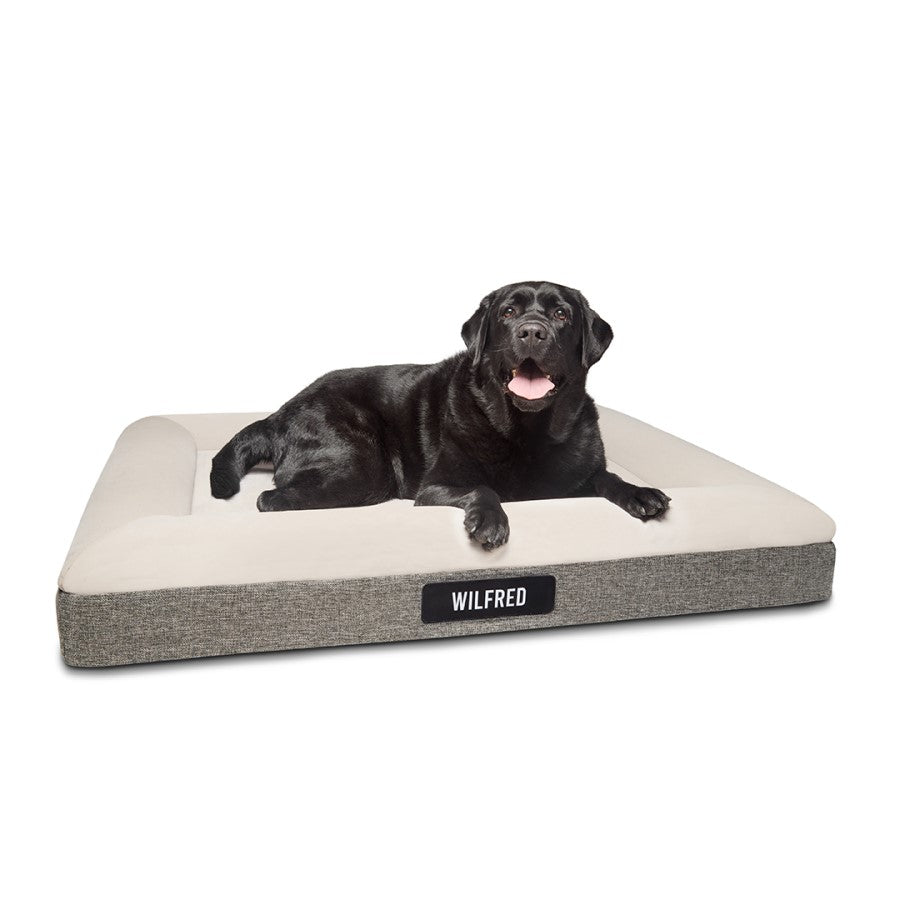
How To Choose A Bed For An Older Dog : A Guide to Comfort and Care
|
|
Time to read 2 min
|
|
Time to read 2 min
As our beloved canine companions enter their golden years, their needs begin to change, and comfort becomes paramount. Just as we might opt for a supportive mattress or a specially contoured pillow to ease our aches, older dogs greatly benefit from beds designed to support their aging bodies. In this guide, we'll explore how to choose the perfect bed for your senior dog, with a special focus on the benefits of orthopedic dog beds.
Older dogs, much like humans, can face a variety of age-related issues such as arthritis, hip dysplasia, and general muscle loss. These conditions can make lying down on hard surfaces not only uncomfortable but potentially harmful. An ideal dog bed for seniors should provide ample support and ease the pressure on their joints and bones.
Orthopedic dog beds are crafted with medical-grade support in mind. They're not just fancy cushions; they're designed to distribute your dog's weight evenly, minimizing pressure points. This can significantly reduce pain and discomfort, leading to better sleep quality and, consequently, a happier, more energetic dog.
The heart of most orthopedic beds is memory foam. This material conforms to your dog's body, providing tailored support to every curve and contour. It's particularly beneficial for dogs with arthritis or other joint issues, as it offers a gentle cushioning against the hard floor.
When shopping for an orthopedic bed for your senior dog, consider the following features:
Thick, High-Quality Foam: Ensure the bed is thick enough to prevent your dog from sinking down to the floor. High-density foam is a good indicator of quality and durability.
Waterproof Cover: Older dogs may have accidents, so a waterproof or water-resistant cover is essential for easy cleaning and hygiene maintenance.
Low Entry Point: A bed with a low entry point makes it easier for dogs with limited mobility to get in and out without straining themselves.
Non-Skid Bottom: This keeps the bed in place, ensuring safety when your dog steps on and off.
While orthopedic beds are a fantastic choice, it's also worth considering other bed types that can cater to specific needs:
Bolster Beds: These beds have raised edges that provide head and neck support, ideal for dogs who like to lean or curl up.
Heated Beds: For dogs in colder climates or those with severe arthritis, a heated bed can provide soothing warmth to ease joint stiffness.
Elevated Beds: These keep your dog off the cold, hard ground and can be easier to get onto for some dogs, providing firm support and aiding in temperature regulation.
Make sure the bed is appropriately sized for your dog. They should be able to lie down and stretch out fully without any part of their body hanging off the edge. When in doubt, opt for a larger size to ensure maximum comfort and freedom of movement.
Every dog is unique, and what works for one may not work for another. Pay attention to your dog's sleeping habits and preferences. Do they like to stretch out or curl up? Do they get hot easily, or do they seek out warm spots? These habits can guide your decision-making process.
Choosing the right bed for your senior dog is an act of love and care that can significantly enhance their quality of life. Orthopedic dog beds, with their supportive memory foam, can provide the relief and comfort your aging companion deserves. Remember, a good day starts with a good night's sleep, and with the right bed, your senior dog will be well-rested and ready to enjoy their golden years to the fullest.



